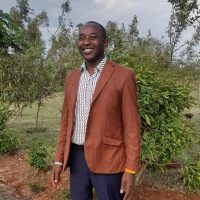Marsabit county before 1988 had three constituencies, Moyale, Marsabit South (currently Laisamis and Marsabit North constituency – what is currently Northhorr and Saku Constituencies.
For today, allow me to focus on Marsabit North constituency which got her first member of parliament Alex Isacko Umuro after he defeated Galgallo Godana in the 1969 General election, the two, both Gabra were the only contestant.
Five years later, there came 1974 general election that attracted six candidates among them J J Falana, Elisha Godana, Haro Godana, Alex Isacko Umuro and Galgallo Godana.
Elisha Godana carried the day making it to parliament as the second MP for Marsabit North constituency.
In 1979 general elections, Alex Isacko Umuro made a come back having won with a huge margin of about three thousand votes, he garnered over 7,000 votes while second runner up J J Falana garnered slightly over 4000 votes, incumbent Elisha Godana came distant third with less than 2000 votes.
In 1982 after the demise of Alex Isacko Umuro, Abdikadir Yattani was nominated to parliament in a Kenya gazette notice dated 2nd March 1982.
In 1983 general election, Abdikadir Yattani retained his seat after garnering 6000 votes against J J Falana who garnered 4000 votes.
In 1988 elections, Marsabit North constituency was split and Saku constituency curved out along the Marsabit national reserved boundaries as the remaining part of larger Marsabit North constituency renamed Northhorr constituency.
In Saku constituency, J J Falana became the first MP and Dr Bonaya Godana became the first MP for Northhorr constituency.
J J Falana served the people of Saku for two terms up-to 1997 before Abdi Sasura took over, on the other hand, Dr Bonaya Adhi Godana served the people of Northhorr until his demise in the fateful air accident in 2006 that saw Marsabit county lost all her four members of parliament and two of its prominent sons Bishop William Waqo and member of E.A parliament Adan Biru among other Kenyans.
If you look at the leadership period held by the honourable members mentioned above, you will realize that there has been sustained peaceful coexistence and their different ethnic affiliation were not loudly pronounced as key campaign issue. The hatred and ethnic polarization wasn’t as rampant as currently is.
From 1979 elections, voting took ethnic pattern with Gabra candidate having an advantage over other candidates, votes garnered were literally reflection of number of votes respective communities marshalled amongst themselves for their “candidate”. However, as I earlier mentioned, ethnic hate wasn’t propagated by candidates, winning the political seat wasn’t a matter of life and death, politicians then did not radicalize their supporters to hate their opponents.
The narrative that this community is superior to the other or that community is bully and doesn’t want to be led by minority ethnic group wasn’t part of the campaign tool.
It’s just over a decade ago that seed of negative ethnicity and profiling crept in our lives and we lost all our elected leaders while they were on a journey searching for peace in order to resolve and bring to end animosity amongst ourselves.
If as people of Marsabit we reflect on the circumstances and time in which we lost our leaders at one go, then we have all the reasons to embrace each other and forever be bonded as one people.
Before the demise of our leaders, the three major ethnic groups forgot about their God and saw leaders as their everything, for the Borana community, the late Hon Dr Gurach Galgallo and the late Hon Abdi Sasura were seen as their liberators, for Gabra community the late Hon Dr Bonaya Godana was their liberator and so is the late Hon Titus Ngoyoni for the Rendile community, these leaders were perceived messiahs of their respective communities, harmonious coexistence over the years devoid of hate not withstanding, every community was yearning for “liberation” from each other.
Painfully, we lost all our beloved leaders while they were on peace mission, paying the ultimate price for our unnecessary fights.
Sadly the current crop of polical leaders learnt nothing, not from our leaders who together were called by Lord or from the leaders who led or were active in politics of the larger Marsabit North constituency.
For them, ethnicity and clanism is their greatest tool to mobilize their support base and ride to to leadership “glory” on sowing the seeds of discord among the good people of Marsabit, yet among themselves they are buddies, they wine and dine together while their “subjects” don’t see eye to eye, for me they are an “ethnic” group I call “tribe politicians, the trouble makers of Marsabit county.
Otherwise, how can anyone explain involvement of traditional institutions such Gadha, Yaa, Nabo and others in political endorsement? While such endorsement ideally isn’t part of job description for traditional institutions, the tribe politicians manipulates the “endorsement process” and the highest bidder carries the day. This has watered down the integrity and dignity of these institutions.
What this means for the good people of Marsabit is that they are on their own, seen by tribe politicians as voting machines and arsenals for “fighting political battles”.
Gabra and Boran have more similarities than differences, their diversity should be strength and not otherwise, the time is ripe to wake up from deep slumber and forgive each other, burry the hatchets and joins hands against the trouble makers of Marsabit county and embrace peaceful and harmonise coexistence.


 Share on bsky
Share on bsky




Read 0 comments and reply